Twitch is finally giving some streamers a bigger slice of the money pie, but there are some big conditions, too
The revenue share will be changed to 70/30 in October, but only for some streamers—and with limits to how much they can earn.
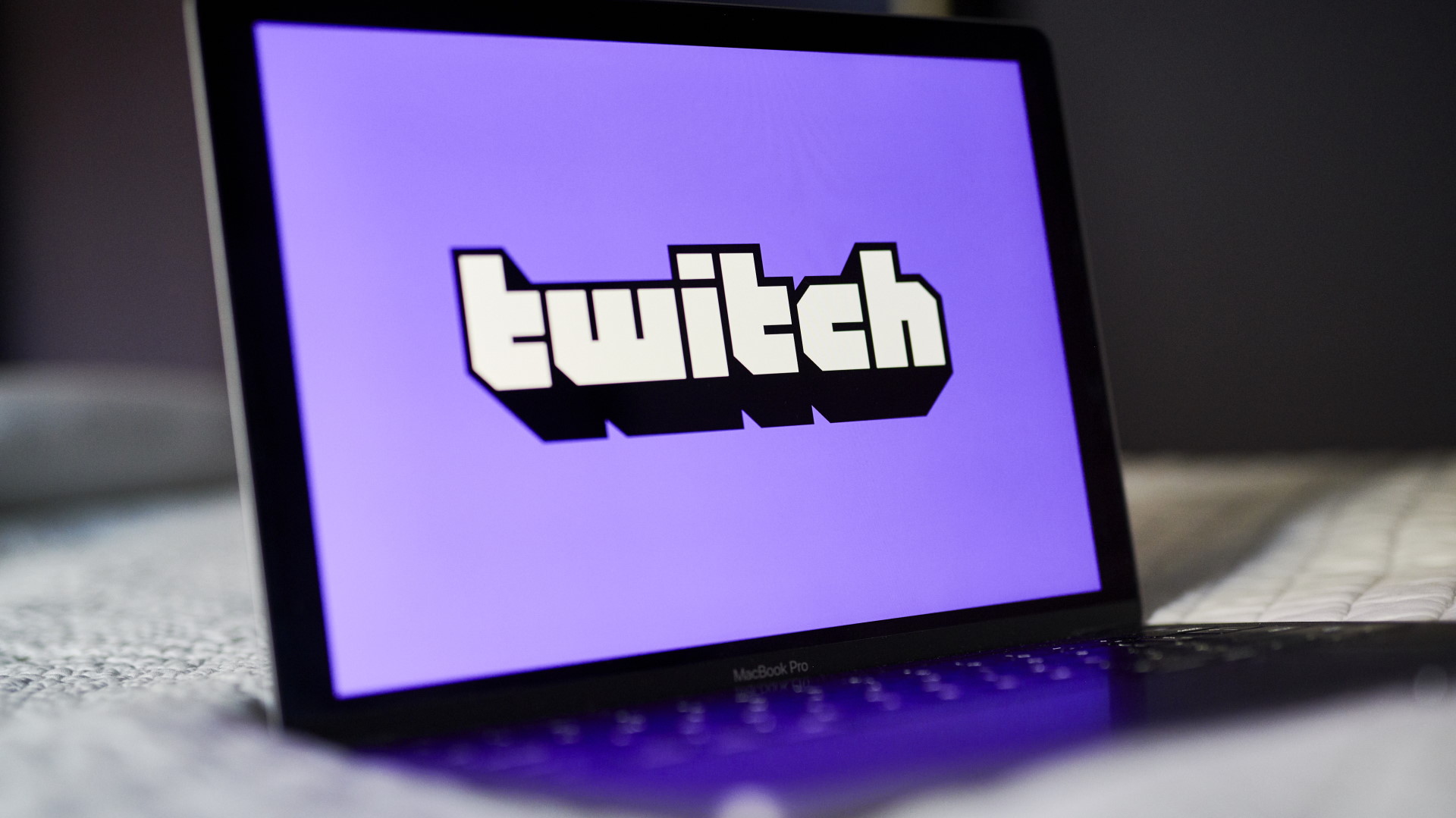
One of the biggest complaints Twitch faces from its streamers is about its deep revenue cut. Twitch takes 50% of what streamers earn from subscriptions, significantly higher than the 70/30 split offered by YouTube. It's been a major point of contention for some time now, and tensions seem to be rising: A plan to change how streamers can embed ads, for instance, generated sustained outrage that ultimately forced a walkback. Now Twitch appears to be extending an olive branch by finally adjusting its revenue split to be more generous—but only for some streamers, and with several conditions attached.
Twitch’s new Partner Plus program will give streamers a 70/30 cut on net subscription revenue (that is, revenue from recurring monthly subscriptions and gift subscriptions, but not Twitch Prime subscriptions), a share that brings it in line with other platforms. To qualify, however, a streamer must have at least 350 "recurring paid subscriptions” for a period of three consecutive months—gift and Prime subs do not count toward the total.
The good news is that once a streamer has met that threshold, they'll be automatically enrolled in Partners Plus for the next 12 months, even if their subscription count drops below 350 at any point over that subsequent year. And as long as they maintain three consecutive months of 350 or more paid subscribers, the 12 month period will be extended.
The bad news is that the 70/30 revenue split is capped at $100,000 per calendar year—after that, the split reverts back to 50/50. That's certainly nothing to sneeze at, and back-of-the-napkin math suggests that streamers on the bubble won't need to worry about running up against it: 350 subscribers adds up to $1,750 per month, which works out to $21,000 per year, well short of the limit. Even so, it does cap the money-making opportunities in ways that other platforms don't.
It’s also fair to note that the Partner Plus program excludes an awful lot of streamers. 350 subscribers is a tiny fraction of what big-time streamers pull in, but it’s still an awfully big number for beginning or part-time streamers.
Early reactions to the change seem split. Many of the replies on Twitter called for the better revenue share to be extended to everyone, including non-partners, saying that the 350 paid sub minimum is too restrictive, while others greeted it with cautious optimism, saying that at least it's a move in the right direction.
"Good start," AbleGamers senior director Steven Spohn tweeted. "70/30 should be for all partners, but I'm glad to see things changing. I think it's going to be difficult for some disabled streamers with chronic illness/pain who may have trouble holding 350 unique subs for three months. Perhaps consider case-by-case exceptions?"
The biggest gaming news, reviews and hardware deals
Keep up to date with the most important stories and the best deals, as picked by the PC Gamer team.
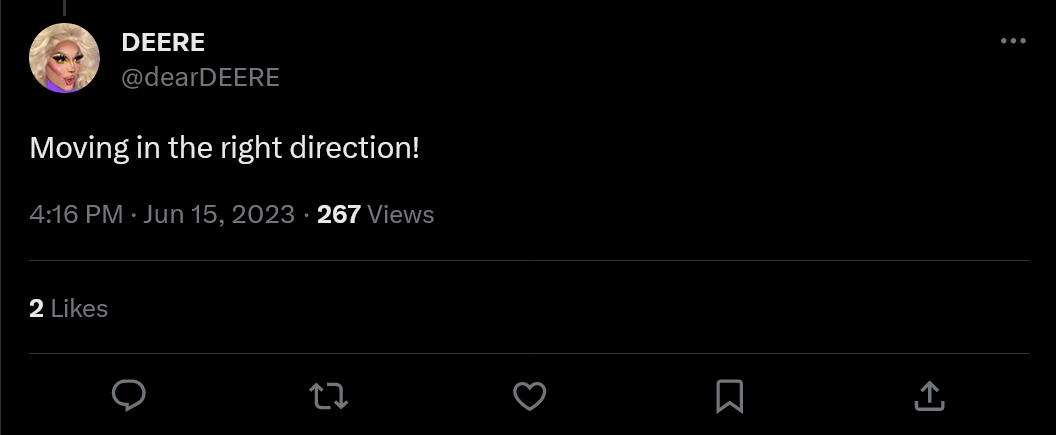
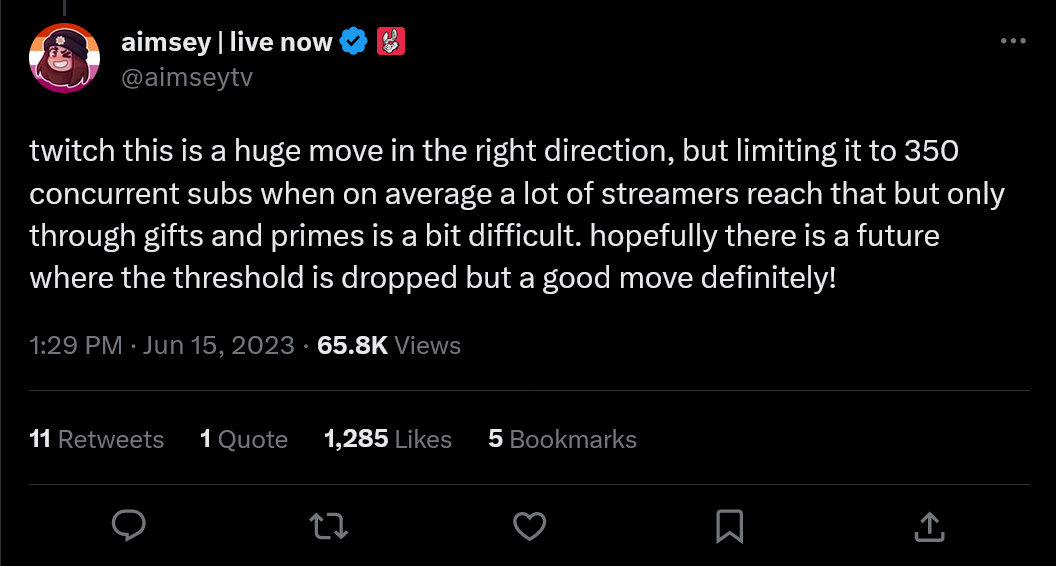
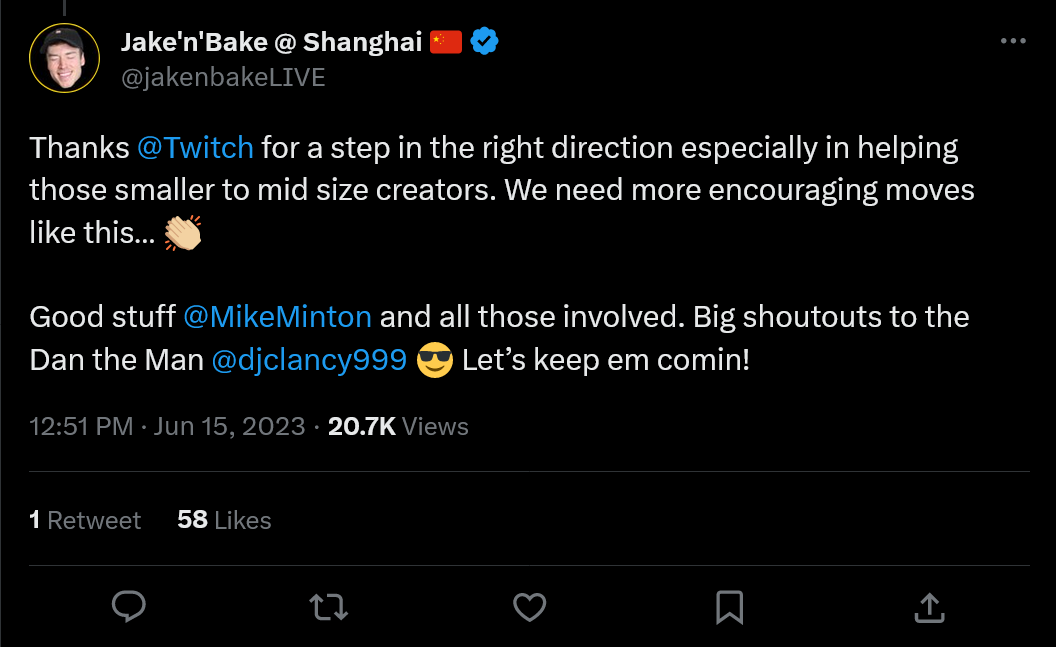
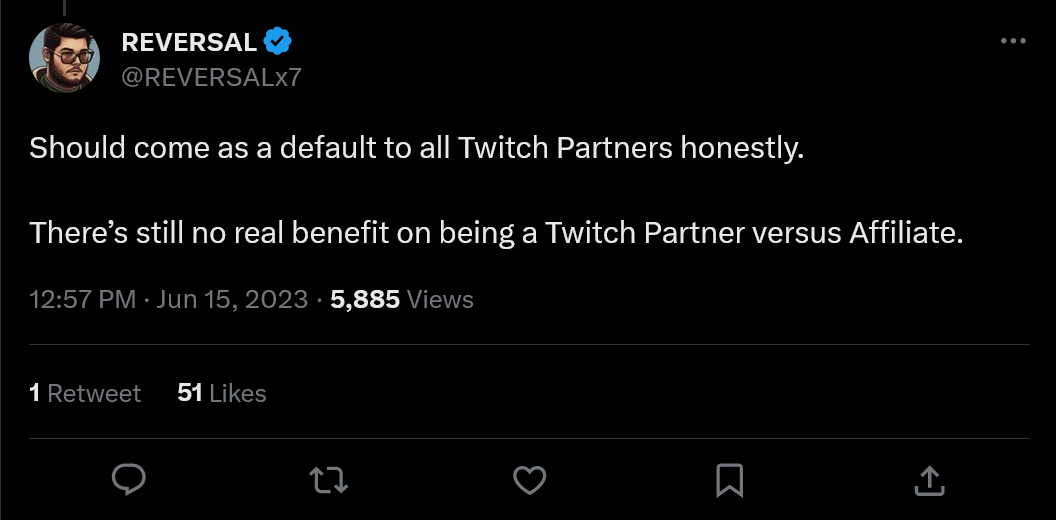
It’s a small step to be sure, but at least it’s movement in a positive direction, which is something Twitch needs right now. The platform has faced a growing chorus of criticism over missteps and mismanagement over the past several months, much of it centered on Twitch's flat-out refusal to give streamers a larger cut of the revenues they earn.
Twitch's Partner Plus program is set to go live in October—streamers who meet the eligibility requirement over July, August, and September will be automatically enrolled. Full details on how the program works are available on the Partner Plus FAQ.

Andy has been gaming on PCs from the very beginning, starting as a youngster with text adventures and primitive action games on a cassette-based TRS80. From there he graduated to the glory days of Sierra Online adventures and Microprose sims, ran a local BBS, learned how to build PCs, and developed a longstanding love of RPGs, immersive sims, and shooters. He began writing videogame news in 2007 for The Escapist and somehow managed to avoid getting fired until 2014, when he joined the storied ranks of PC Gamer. He covers all aspects of the industry, from new game announcements and patch notes to legal disputes, Twitch beefs, esports, and Henry Cavill. Lots of Henry Cavill.

